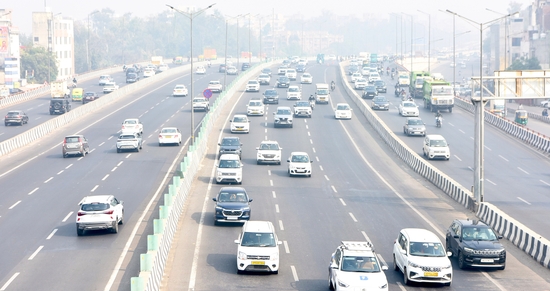New Delhi, Union Tribal Affairs Minister Jual Oram on Monday said his ministry is examining objections raised by tribal communities regarding a mega infrastructure project proposed on Great Nicobar Island.

The project, titled ‘Holistic Development of Great Nicobar’, involves building a transshipment port, an international airport, a township and a power plant over more than 160 sq km of land.
This includes about 130 sq km of pristine forest, home to the indigenous Nicobarese and Shompen communities, classified as ‘Particularly Vulnerable Tribal Groups’ .
When asked if the ministry was investigating complaints from tribal communities regarding the project, the minister told reporters, “Yes, it is under examination. I had also answered a question in Parliament. We are currently examining the documents they have submitted. After that, we will decide the course of action.”
On further questioning about what the ministry seeks to ascertain, Oram said, “First, we need to determine whether the ‘gram sabha’ was held, what the ‘gram sabha’ recommended and whether there have been any violations.”
Interestingly, during a discussion in the Rajya Sabha on March 12, Oram said he was not aware of any objections raised by the tribal communities of Great Nicobar to the project.
According to media reports, the Tribal Council of Little and Great Nicobar had withdrawn the no-objection certificate it had issued in August 2022 for the denotification of 84.1 sq km of tribal reserve and diversion of 130 sq km of forests, alleging that important information was not revealed while seeking NOC.
A tribal council is a local elected body and its approval is important for land diversion and forest clearances, just like the gram sabha’s approval.
Around 853 sq km of the island’s total 910 sq km is designated as a tribal reserve under the Andaman and Nicobar Regulation, 1956.
In tribal reserves, the tribal communities own the land and have full rights to use it for their daily needs. However, transferring, acquiring, or selling land in these areas is strictly prohibited.
For the safety and protection of the Shompen tribe, the Andaman and Nicobar Administration introduced the Policy on Shompen Tribe of Great Nicobar Island on May 22, 2015.
Union Minister of State for Tribal Affairs Durgadas Uikey informed the Lok Sabha on December 12 last year that, regarding the Great Nicobar Island project, the Shompen Policy “allows development proposals subject to due consultation with the concerned authorities, which has been done”.
“A&N Administration has informed that the project will not disturb or displace any Shompen PVTG,” he added.
This article was generated from an automated news agency feed without modifications to text.

